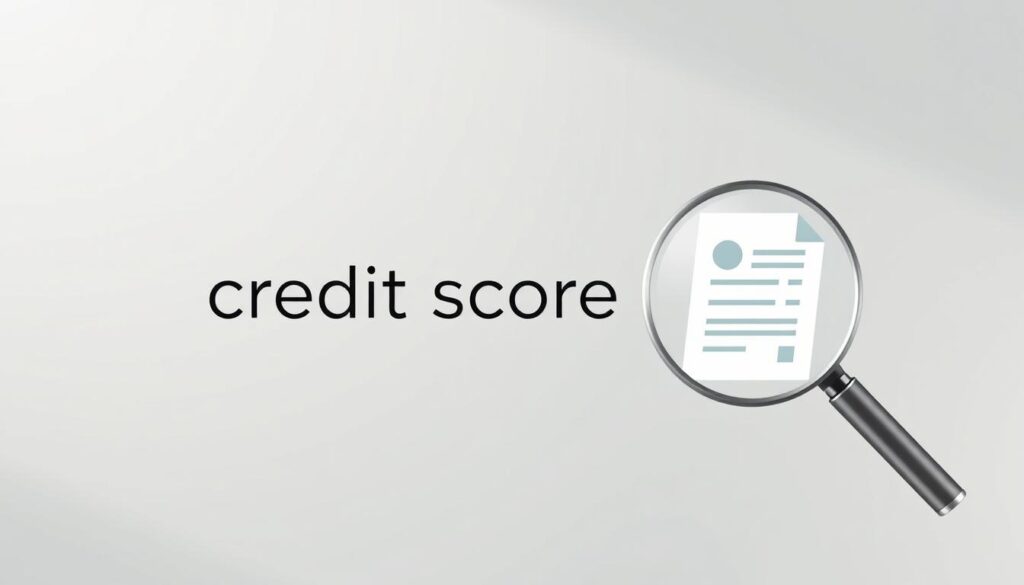Do you want a card for all occasions?
Knowing your credit score is key to managing your money well. It’s a number that shows if you can be trusted by lenders. It affects many things like getting loans, renting places, and what you pay for insurance.
By understanding what makes up your credit score and how to improve it, you have the power to shape your finances. This knowledge lets you make smart choices to boost your credit.

Chase Sapphire Preferred®
What is a Credit Score?
A credit score is a number that shows how well you use credit. It’s key when you want to borrow money. Knowing your credit score helps you handle your money better.
Definition and Importance
Credit scores are really important for lenders. They use them to decide if they should lend you money. A high score means you get better loan terms. Knowing your score and what affects it is important.
Range of Credit Scores
Scores range from 300 to 850. The closer to 850, the better it looks to lenders. Each scoring model might give different results. So, it’s important to keep an eye on your score. Understanding these models helps you in real life.

Why Does Your Credit Matter?
Your credit score is very important in your financial life. It helps decide if you get loans, where you can live, and even job chances. A good credit score means better loan conditions, saving you money.
Impact on Loan Applications
Lenders look at your credit score to figure out if lending to you is risky. A high score can get you better loan rates and terms. This saves you money. But, a low score can make loans more expensive or even impossible to get.
This shows why a good credit score is key for future money needs.
Effect on Renting and Employment
Want to rent a place? Landlords check your credit. Poor credit can limit your housing options. It makes finding a good home tough.
Employers might also check your credit, especially for jobs handling money. Strong credit can boost your job chances and keep your career steady. This shows how wide the impact of credit is.
How to Know If Your Credit is Good?
Finding out if your credit is good means looking at key signs. These signs are crucial for getting good loan conditions and financial chances. You can check how healthy your credit is by often reviewing your credit report.
Indicators of Good Credit
Several signs point to having good credit:
- Timely bill payments consistently over time.
- A low debt-to-credit ratio, showing smart credit use.
- A diverse mix of credit types, like loans and credit cards.
Understanding Credit Reports
Understanding your credit report is vital for knowing your credit status. It shows your credit history, accounts, and how you pay your bills. It also highlights any serious issues like bankruptcies which can really hurt your credit score. By checking both your credit report and score, you get a clear view of where you stand with lenders.
What’s Included in Your Credit Report?
It’s crucial for everyone to understand their credit reports. This document shows how reliable you are with money. By knowing what’s inside, you can see where you stand financially and find ways to get better.
Key Components of a Credit Report
Your credit report has key details like:
- Name and address
- Social Security number
- Accounts held, including credit cards and loans
- Payment history on these accounts
- Public records, such as bankruptcies or liens
Each piece of info affects your credit score. Knowing these can help you make smart money moves.
The Role of Credit Bureaus
Credit bureaus like Equifax, Experian, and TransUnion keep your credit info. They follow strict rules to make sure everything is correct. If you find a mistake on your report, you can challenge it. Understanding how these bureaus work helps you take charge of your credit history.
How to Obtain Your Credit Report
It’s important to know how to get a credit report to keep your finances healthy. In the U.S., you can get a free credit report every year from the three big credit bureaus. This lets you check your credit for mistakes and guard against identity theft.
Free Credit Reports and Resources
AnnualCreditReport.com is the official site for free credit reports in the U.S. It lets you review your credit from Equifax, Experian, and TransUnion. You should spread out your reports during the year to catch any big changes.
Regular Monitoring of Your Credit Report
Regularly checking your credit report is key. Doing this often can help you spot errors or identity theft early. Fixing mistakes quickly helps protect your financial health. Keeping an eye on your credit is smart for making good financial choices in the future.
Understanding Credit Scores and Their Calculation
Knowing how credit scores work is key for anyone wanting to keep their finances healthy. Your score shows if you’re a good candidate for borrowing money and changes based on a few things. By knowing what affects your score, you can work on making it better.
Factors Affecting Your Credit Score
Several important factors help decide your credit score. These are:
- Payment History: This is the biggest factor, showing if you pay your bills on time.
- Amounts Owed: This looks at how much debt you have compared to your credit limit.
- Length of Credit History: A longer credit history usually shows you’re a reliable borrower.
- New Credit Inquiries: Too many new requests for credit can lower your score.
- Types of Credit Accounts: Having a mix of credit types can help your score.
Variability in Credit Scores Across Different Lenders
Different lenders might give you different credit scores. They use their own ways to figure out scores, so the same person can have various scores. Knowing about these differences helps when you’re applying for loans, making it easier to get good terms.
Ways to Improve Your Credit Score
To boost your credit score, focus on paying bills on time and using less credit. These steps are key to showing lenders that you’re financially reliable.
Paying Bills on Time
Making bill payments on time is crucial for a good credit score. If you miss payments, it hurts your credit history and score. To avoid this, use autopay for your bills. It helps keep your finances on track.
Maintaining Low Credit Utilization
Keeping your credit use low is another smart move. Try not to use more than 30% of your total credit limit. For example, if your limit is $10,000, spend less than $3,000. Checking your credit report helps fix mistakes and reflects your true financial habits.
How Can You Protect Your Credit?
Keeping your financial identity safe calls for active steps. Using credit freezes and watching for identity theft are two key ways. They help block unauthorized access to your credit report and accounts.
Implementing Credit Freezes
Putting a freeze on your credit reports is a smart move. It stops lenders from seeing your credit file, thus guarding against identity theft. If you think someone may have stolen your personal info, act fast. Freeze your credit to stop thieves.
It’s easy to set up a credit freeze. You just contact the major credit bureaus.
Monitoring for Identity Theft
Keeping an eye on your credit can prevent financial trouble. By signing up for monitoring services, you catch any odd activities early. Like if someone opens a new account in your name.
These services will alert you to anything fishy, letting you act right away. This way, you can fight identity theft and protect your info.
Common Mistakes to Avoid with Your Credit
Having good credit means more than just paying on time. Many people hurt their credit without realizing it. Knowing what mistakes to avoid can help you keep a good credit score.
Understanding the Effects of Multiple Credit Applications
Applying for a lot of credit in a short time can hurt your score. Each application leads to a hard check, making you seem risky to lenders. This could mean higher rates or being denied credit later. It’s smart to only apply when needed and compare rates within a short period.
Closing Accounts and Its Impact
It may feel right to close credit accounts to simplify your financial life. But this can backfire. Shutting accounts shortens your credit history length, which is key for your score. It also raises your credit use ratio if you owe money on other cards. Keeping older accounts open and using credit wisely is crucial.
Fixing Mistakes in Your Credit Report
Errors in your credit report can really mess up your financial life. It’s important to tackle these errors quickly. By knowing how to dispute credit report errors, you can keep your credit in good shape. This shows you’re responsible with your finances.
Steps to Dispute Inaccuracies
Disputing errors on your credit report involves a few important steps:
- Review your credit report carefully to spot any mistakes.
- Collect documents that prove your point.
- Send a dispute to the credit bureau, online or by mail.
- Explain the mistake clearly and give evidence to help them check.
- Keep an eye on progress updates for your dispute.
Role of Credit Bureaus in Corrections
Credit bureaus must follow certain rules under the Fair Credit Reporting Act. They need to look into disputes about wrong information. They also help fix credit reports when needed. Knowing what credit bureaus should do helps you dispute errors effectively.
Conclusion
Understanding your credit score is key to navigating finances. It is vital for your financial health and chances. Knowing your credit helps you make smart choices, like getting loans or finding a place to live.
To keep a good credit score, be diligent. Pay on time, check for fraud, and fix errors. This improves your credit and helps get loans with better terms. It also keeps your finances strong now and later.
A strong credit score offers many financial opportunities. It helps you reach your goals and secure your future. Learn about and improve your credit to open these doors.
FAQ
What factors determine my credit score?
How often should I check my credit report?
What is a credit freeze, and when should I use it?
Can my employer check my credit score?
What should I do if I find an error on my credit report?
How does a low credit utilization ratio affect my credit score?
Are there different types of credit scores?
What is the significance of timely bill payments for my credit score?
How do I build good credit if I’m just starting out?
Conteúdo criado com auxílio de Inteligência Artificial



